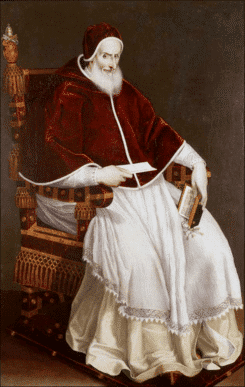

On August 30, 1568 — 450 years ago — Pope St. Pius V issued the bull Horrendum Illud Scelus (“That Horrible Crime”) which, among other things, stripped religious and clerics of the impunity they otherwise enjoyed for committing acts “by which corrupt and obscene cities were destroyed by fire through divine condemnation.” Knowing that the sin of Sodom would only spread if stronger measures were not taken, Pius V decreed that “any priest or member of the clergy . . . who commits such an execrable crime, by force of the present law be deprived of every clerical privilege, of every post, dignity and ecclesiastical benefice, and having been degraded by an ecclesiastical judge, let him be immediately delivered to the secular authority”
It is hard to imagine such strong medicine for grave moral ills being prescribed by Rome today, yet that is what the Church requires if she is ever to recover. In the meantime, the People of God cannot sit idly by waiting for a new Pius V to ascend to the Papal Throne with a divine mandate to secure the faithful and drive the unrepentant from the temple. (Introductory text by Father Jürgen Wegner).
The latin text of Horrendum Illud Scelus comes from the book under the title: “Magnum Bullarium Romanum a Beato Leone Magno usque ad S. D. N. Benedictum XIII” by Pope Clément XII, 1727 edition.
Horrendum Illud Scelus in Latin and English
| Orrendum illud scelus, quo pollutae foedataeque Civitates a tremendo Dei iudicio conflagrarunt, acerbissimum Nobis dolorem inurit, graviterque animum nostrum commovet, ut ad illud, quantum potest, comprimendum, studia nostra conferamus. | That horrible crime, by which corrupt and obscene cities were destroyed by fire through divine condemnation, causes us most bitter sorrow and shocks our mind, impelling us to repress such a crime with the greatest possible zeal. | |
| § 1. Sane Lateranensi Concilio dignoscitur constitutum, ut quicumque Clerici, illa incontinentia, quae contra naturam est, propter quam ira Dei venit in filios diffidentiae, deprehensi fuerint laborare, a Clero deiiciantur, vel ad agendam in Monasteriis poenitentiam detrudantur. | § 1. Quite opportunely the Fifth Lateran Council [1512-1517] issued this decree: “Let any member of the clergy caught in that vice against nature, given that the wrath of God falls over the sons of perfidy, be removed from the clerical order or forced to do penance in a monastery” (chap. 4, X, V, 31). | |
| § 2. Verum ne tanti flagitii contagium, impunitatis spe, quae maxima peccandi illecebra est, fidentius invalescat, Clericos huius nefarii criminis reos, gravius ulciscendos deliberavimus, ut qui animae interitum non horrescunt, hos certe deterreat civilium legum vindex gladius saecularis. | § 2. So that the contagion of such a grave offense may not advance with greater audacity by taking advantage of impunity, which is the greatest incitement to sin, and so as to more severely punish the clerics who are guilty of this nefarious crime and who are not frightened by the death of their souls, we determine that they should be handed over to the severity of the secular authority, which enforces civil law. | |
| § 3. ltaque quod Nos iam in ipso Pontificatus nostri principio hac de re decrevimus, plenius nunc, fortiusque persequi intendentes, omnes, et quoscumque Presbyteros, et alios Clericos saeculares, et regulares, cuiuscumque gradus, et dignitatis, tam dirum nefas exercentes, omni privilegio clericali, omnique officio, dignitate, et beneficio Ecclesiastico praesentis canonis auctoritate privamus. Ita quod per ludicem Ecclesiasticum degradati, potestati statim saeculari tradantur, qui de eis illud idem capiat supplicium, quod in laicos hoc in exitio devolutos, legitimis reperitur sanctionibus con stitutum. | § 3. Therefore, wishing to pursue with greater rigor than we have exerted since the beginning of our pontificate, we establish that any priest or member of the clergy, either secular or regular, who commits such an execrable crime, by force of the present law be deprived of every clerical privilege, of every post, dignity and ecclesiastical benefice, and having been degraded by an ecclesiastical judge, let him be immediately delivered to the secular authority to be put to death, as mandated by law as the fitting punishment for laymen who have sunk into this abyss. | |
| Nulli ergo, etc. | Nothing to the contrary withstanding, etc. | |
| [Bull. Rom., tom. 4, III, p. 33] |
S. Pius V, const. Horrendum, 30 aug. 1568.

-
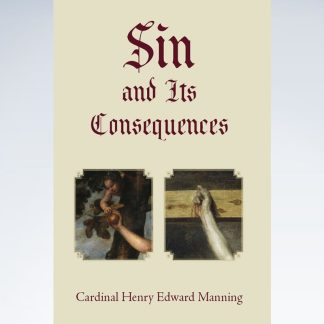 Sin and Its Consequences by Cardinal ManningUS$ 19.00
Sin and Its Consequences by Cardinal ManningUS$ 19.00 -
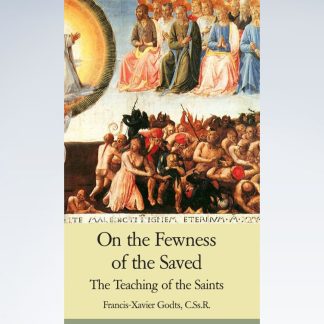 On the Fewness of the Saved – The Teaching of the SaintsUS$ 33.00
On the Fewness of the Saved – The Teaching of the SaintsUS$ 33.00 -
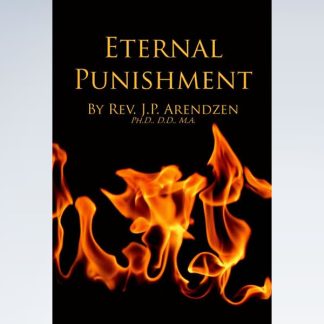 Eternal PunishmentUS$ 14.00
Eternal PunishmentUS$ 14.00 -
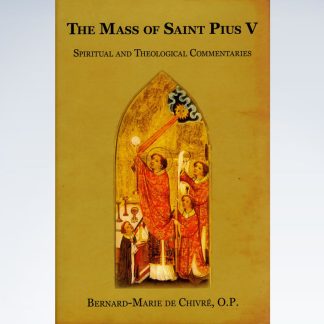 The Mass of Saint Pius V: Spiritual and Theological CommentariesUS$ 44.00
The Mass of Saint Pius V: Spiritual and Theological CommentariesUS$ 44.00 -
 St Pius V Chaplet of Our Lady of VictoryUS$ 194.00
St Pius V Chaplet of Our Lady of VictoryUS$ 194.00 -
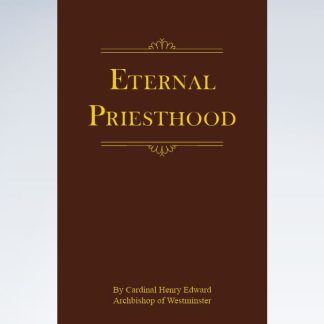 Eternal Priesthood by Cardinal Henry Edward ManningUS$ 21.00
Eternal Priesthood by Cardinal Henry Edward ManningUS$ 21.00
VIRGÓ SACRÁTA is a Christian mission-driven online resource and shop inspired from the beauty of Catholic faith, tradition, and arts. Our mission is to “Restore All Things to Christ!”, in continuing the legacy of Pope St. Pius X under the patronage of the Blessed Virgin Mary. “Who is she that cometh forth as the morning rising, fair as the moon, bright as the sun, terrible as an army set in battle array?” O Mary, conceived without sin, pray for us who have recourse to Thee.


